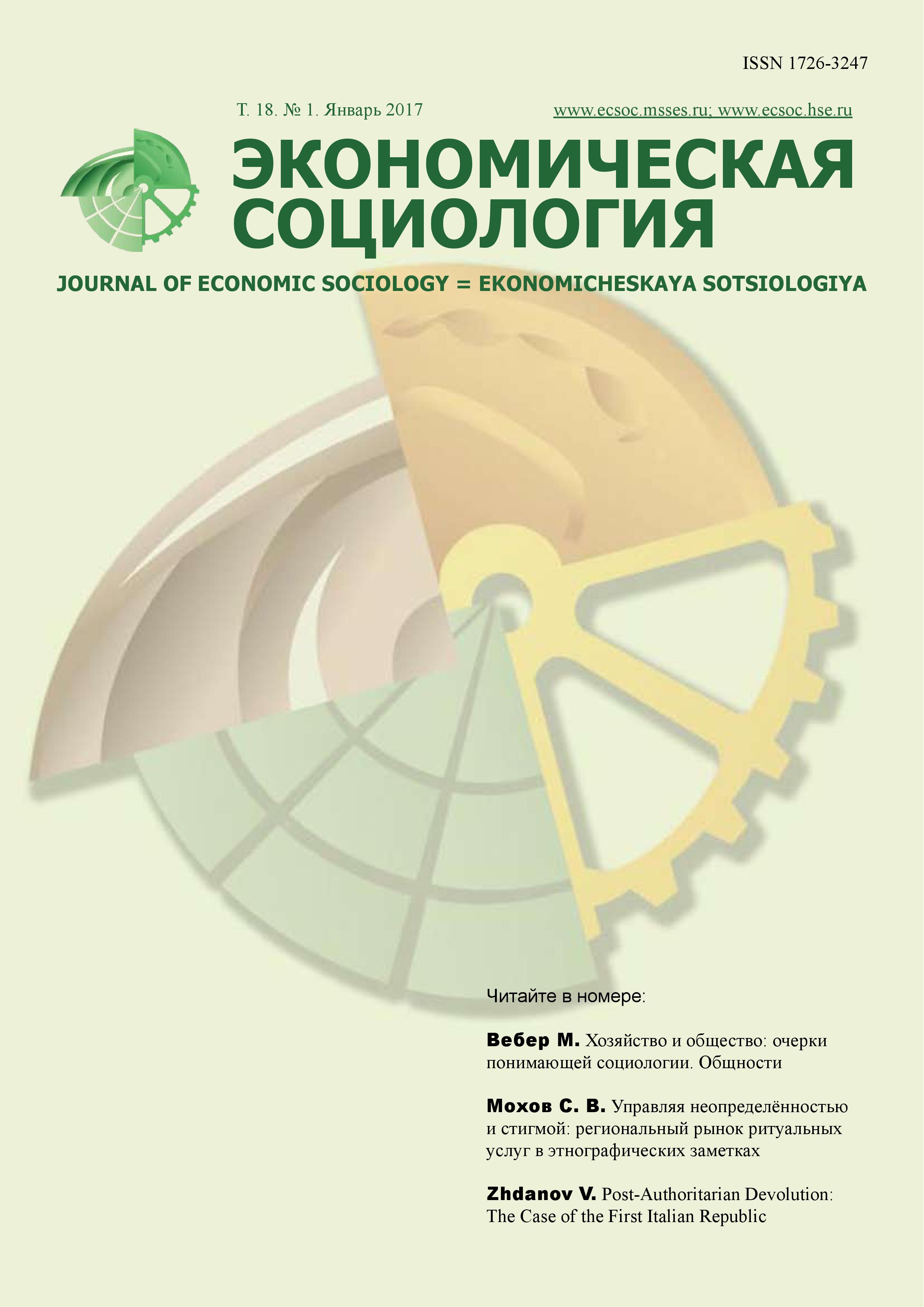Strange Economies We Live in. Book Review: Gudeman S. (2016) Anthropology and Economy, Cambridge: Cambridge University Press. 225 p.
Abstract
A new book by the economic anthropologist Stephen Gudeman presents the analysis of the balance between self-interest and mutuality in economic relations. It is based on the extensive ethnographic data collected by the author and his colleagues during 20th century. As a theoretical schema Gudeman offers a model of the five institutional spheres: house, community, commerce, finance and meta-finance, in which the combination of the last three characterizes the state of modern capitalism. These spheres, on the one hand, represent a historical sequence that reflects changes in the speed, quantity and level of abstraction in economic transactions. On the other hand, the economic spheres are interdependent and exist simultaneously in close cooperation and conflict. Collaboration works through various linking mechanisms such as rent, barter, money, etc., and conflicts manifest themselves when two sides of the economic life — empathy and competition — confront each other. According to Gudeman, the feature of modern market capitalism is the unrestrained growth of rents. Rents give the banks, manufacturers, sellers of goods and services non-competitive benefits, which are covered by the rhetoric of competition and displace empathy as an important part of economic life. This imbalance creates inequality for household and community as the least protected participants in economic relations. A field anthropologist, Gudeman demonstrates the commitment to disciplinary traditions to advocate and represent the groups under study. For him, these groups are not ethnic, religious or subcultural, but all people living in the mundane rules of the first two economic spheres. Although the measures that Gudeman proposes to restore the balance of self-interest and mutuality can hardly be discussed and certainly won’t be implemented by governments, the book represents an important contribution to the anthropological critique of modern capitalism.













